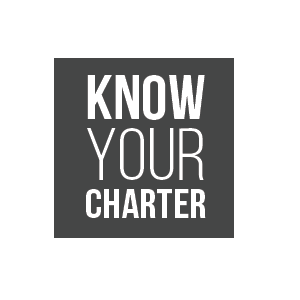
Why ODE should reject ECOT’s bid to remake itself as a so-called dropout recovery school
The embattled and nationally ridiculed Electronic Classroom of Tomorrow, which has been resisting efforts by the Ohio Department of Education (ODE) to recoup $60 million for apparently educating only 40 percent of the kids it charged taxpayers for in the 2015-2016 school year, is now attempting to get around state accountability standards by suddenly changing into a Dropout Recovery and Prevention school. Dropout schools’ state report cards are so minimally rigorous as to be rendered essentially meaningless, as Innovation Ohio has previously detailed.
However, despite ECOT’s gambit, it appears the school has missed crucial deadlines laid out by ODE for that designation to happen this school year. Not only that, but it appears that ODE has the authority to block this naked attempt by ECOT to dodge accountability for its woeful academic performance.
According to the guidelines in ODE’s Dropout Recovery Designation Application for the 2017-2018 school year, schools seeking the designation had to submit the application by July 1. In addition, a school’s sponsor has to write a letter assuring the Department that the school meets the requirements of a Dropout Recovery 10 days before the first day of instruction. ODE is slated to make its decisions about which schools will be considered Dropout Recovery by September 1st.
According to the Columbus Dispatch, the ECOT board and its sponsor – the Educational Service Center (ESC) of Lake Erie West – decided at an August 22 meeting to switch to a Dropout Recovery and Prevention program “immediately,” with the goal of qualifying as a Dropout Recovery School for the 2017-2018 school year.
The obvious problem is August 22 is nearly 2 months after the July 1 deadline set in the ODE application. And according to ECOT’s own website, their first day of school was August 21 – the day before the decision was made to switch.
This timeline, which shows the school missing both the July 1 deadline and the 10-days-before-the-first-day-of-classes deadline indicates that it would be impossible for ECOT to be considered a Dropout Prevention school for the current school year.
It is unclear whether ECOT can or will seek a special dispensation from ODE to receive the designation this year, because ECOT officials have been silent about the reasons and process for their desired change. But if ECOT asks for special treatment, the Ohio Charter School Accountability Project urges ODE to reject those pleas.
In addition, the ODE application states that ODE will do enrollment verification on the school’s first “Community School/School Options Enrollment System (SOES) Student Collection.” If the school fails to have half of its students in a dropout program, the state has the authority to remove the school from the Dropout Recovery designation.
It also appears that ODE has authority through its sponsorship oversight to reject ECOT’s application. Each time a school and non-profit sponsor change their contract, it has to be filed with ODE. According to the ODE guidance on this process, “Upon the review of the modification/amendment, the Department will notify the sponsor and the school if there are any areas of concern that should be addressed.”
ECOT’s attempt to game the system to escape accountability should qualify as an “area of concern.”
It is theoretically possible that ECOT and ESC of Lake Erie West hatched this plan long ago and met all the requisite deadlines but only just now got around to formalizing the contract. However, on the ODE website, the only recent modification of ECOT’s contract was April 11 and that modification did not mention the switch in school type.
So it appears that for now at least, ECOT won’t be able to be considered a Dropout Recovery school for this school year.
The ESC of Lake Erie West has been designated an “Ineffective” sponsor primarily because of its sponsorship of ECOT, according to the Cleveland Plain Dealer. This designation puts the ESC on the path to losing its ability to sponsor schools (and collect their 1.5 percent sponsorship fee, which for ECOT alone is about $1.5 million annually) within a few short years.
However, ECOT’s poor performance as a general education school would be considered high performing under the state’s remarkably lax Dropout Recovery school report card where a school only has to graduate 12 percent of its students in 8 years. The same calculation that heavily weights ECOT’s failing grades against the ESC would – if ECOT becomes a Dropout Recovery school – hyper-inflate the ESC’s performance grade.
The Ohio Charter School Accountability Project urges ODE to exert its authority as laid out in code and regulation to block what is a clear and obvious attempt by a famously poor performing charter school to dodge its responsibility to its students and families.
